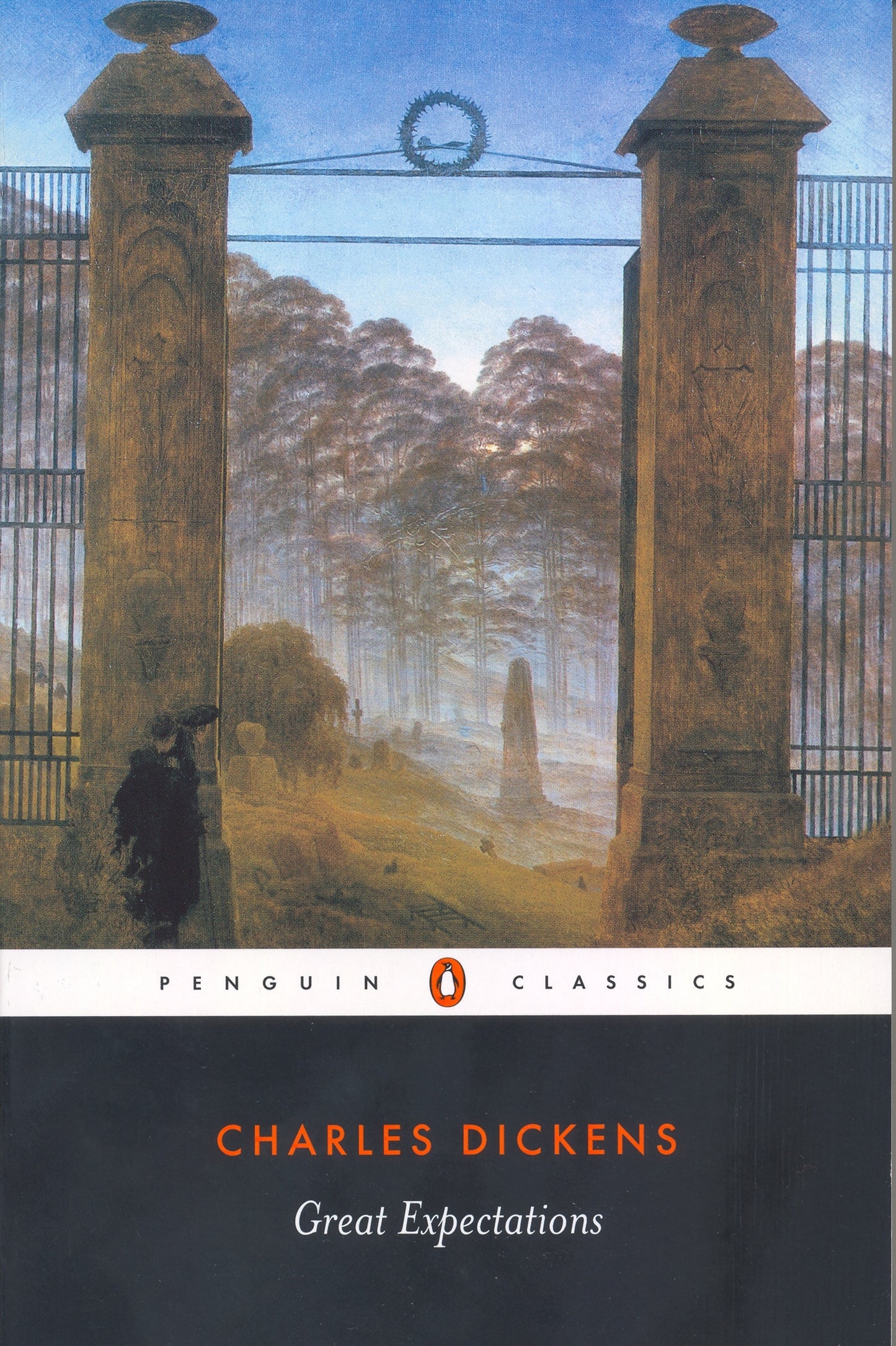Charles Dickens
Great Expectations
Great Expectations
Couldn't load pickup availability
Susan's Review
First published in serial form, and then in a volume in 1861, Great Expectations remains one of the finest examples of the genre of the Bildungsroman: the coming-of-age novel that reached the peak of its popularity in mid-late nineteenth-century Europe. Centred on the working-class orphan Philip Pirrip (Pip), destined to become an apprentice blacksmith, the story follows his unexpected rise to wealth and social status and his subsequent moral decline into snobbery, indolence and self-punishing love for the remote and beautiful Estella. Great Expectations combines the realistic development of its central character with the gothic excess of Miss Havisham, jilted on her wedding day and determined to seek her revenge on faithless men. Melodrama, crime, uncanny coincidences, and a sprawling cast of memorably eccentric characters form the landscape of Victorian England, its ideal of the self-made man cruelly inverted when Pip discovers that his fortune has in fact been “made” by the wealth of the convict Magwitch.
Great Expectations has all the narrative ingredients of Dickens at his exuberant, sentimental and disturbing best. There’s a redemptive death-bed scene and a violent death-by-fire; covert domestic violence, shameful secrets and the value of enduring love. There’s also savage social commentary, as Dickens exposes the dehumanising effects of industrialisation and the morally corrupting desire for money. The novel’s original conclusion, in which Pip learns to become a ‘better’ person only when it’s too late to change his life, was revised by his publishers to offer a reunion with the reformed Estella. But the original ending is much truer to Dickens’ pessimistic take on the Victorian faith in our capacity to re-make ourselves and our lives. Pip remains Pip: a palindromic name that suggests he can neither return to his working-class origins nor find happiness in the future.
Over 160 years since its publication, Great Expectations is a novel for our times in its exploration of the destructive effects of greed and status anxiety, and the injustice of obscene social inequality. One of my favourite classic novels.
Publisher's Review
A terrifying encounter with an escaped convict in a graveyard on the wild Kent marshes; a summons to meet the bitter, decaying Miss Havisham and her beautiful, cold-hearted ward Estella; the sudden generosity of a mysterious benefactor - these form a series of events that change the orphaned Pip's life forever, and he eagerly abandons his humble origins to begin a new life as a gentleman. Dickens's haunting late novel depicts Pip's education and development through adversity as he discovers thetrue nature of his 'great expectations'.
Share


